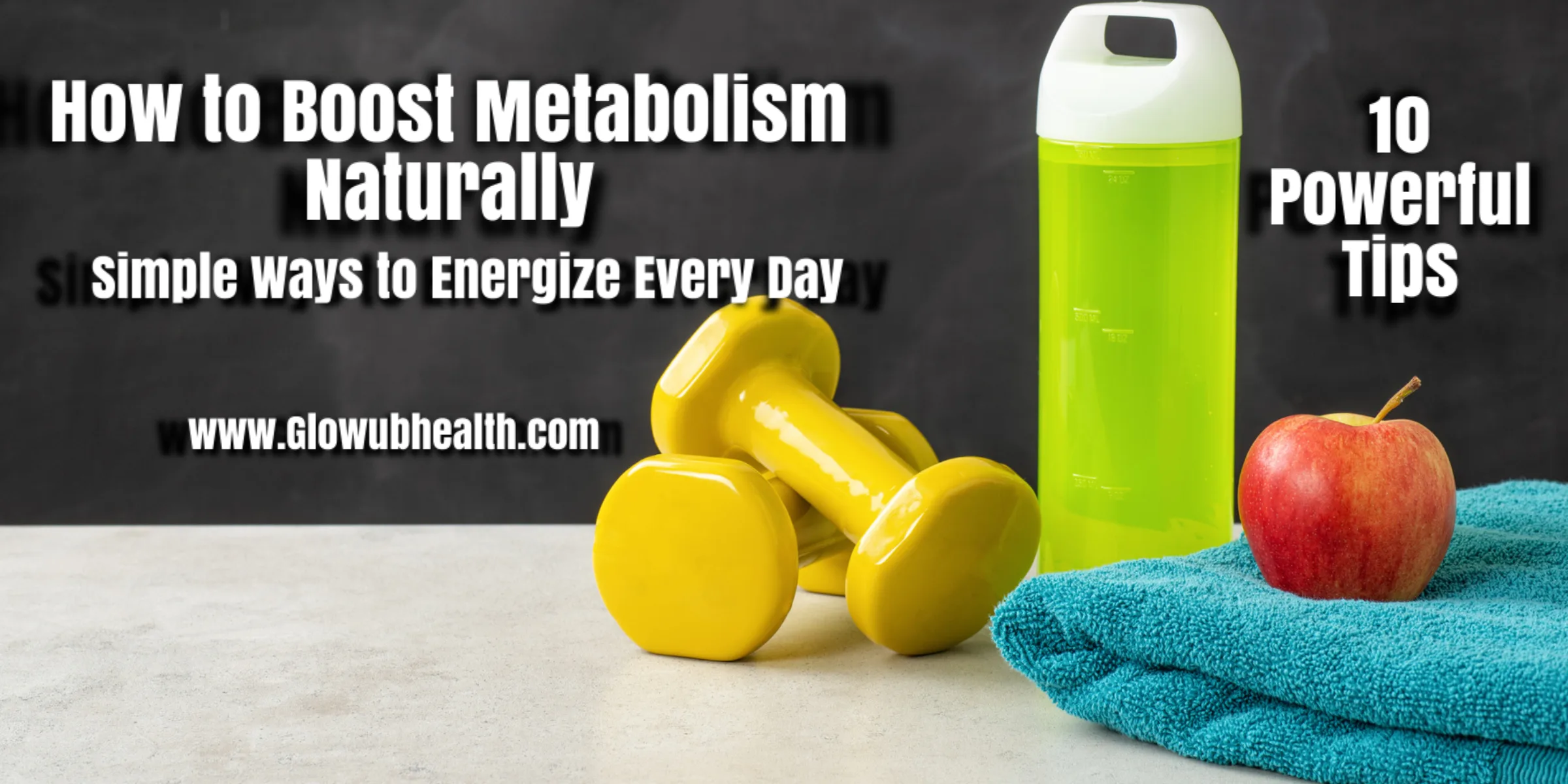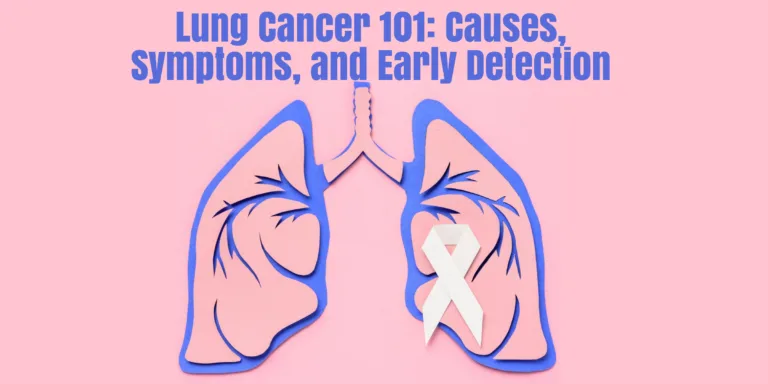How to Boost Metabolism Naturally : 10 Simple Ways to Energize Every Day
Introduction: Why Natural Metabolism Matters
Boosting your metabolism isn’t about chasing trends, quick fixes, or extreme diets—it’s about building a strong, sustainable foundation for lifelong energy, weight management, and overall vitality. Your metabolism is the body’s natural engine, quietly powering essential functions like digestion, cellular repair, and energy production.
Understanding how to naturally support and enhance this engine puts you in the driver’s seat of your health and longevity.
This guide goes beyond surface-level advice. Backed by science and decades of practical insight, it’s designed for those who value lasting results over fleeting gimmicks. Whether you’re looking to increase energy, maintain a healthy weight, or simply feel better in your body, the strategies outlined here offer a reliable and actionable path forward.
This article is for informational purposes only and should not be considered medical advice. Always consult with a healthcare provider before making changes to your health routine, especially if you have underlying health conditions or are on medication.
1) How to Boost Metabolism Naturally: Start with Hydration

Hydration is deceptively simple but profoundly impactful on metabolism. Water fuels metabolic processes, supports cellular health, and even helps regulate body temperature. Just a slight dip in hydration can cause metabolism to slow, meaning less energy, poorer focus, and less effective digestion.
- Expert Tip: Begin each day with a large glass of water, aiming to sip consistently throughout the day. Add a slice of lemon or cucumber for natural flavor, or try herbal teas if plain water doesn’t appeal to you. Small steps, big results.
2) Boost Metabolism with Quality Protein
The power of protein in your diet is hard to overstate. It fuels muscle maintenance, has a high thermic effect (meaning your body burns calories to process it), and helps stabilize blood sugar levels. Eating protein-rich foods every day can make a noticeable difference in how your metabolism functions.
- Expert Tip: Don’t obsess over protein powders and supplements. Instead, focus on whole sources like eggs, lean meats, beans, and tofu. Aim for 20-30 grams per meal for lasting benefits.
Case Insight: Protein’s Role in Metabolism
A long-term study from the American Journal of Clinical Nutrition found that those who consistently included 25-30% of their daily calories from protein not only had better metabolic health but also reported feeling fuller and more satisfied.
3) Incorporate Strength Training to Boost Metabolism

Strength training is essential for building and maintaining muscle mass, which naturally burns more calories than fat. Muscle tissue also requires more energy to sustain itself, making it one of the most effective ways to increase your basal metabolic rate (BMR).
- Expert Tip: Start with the basics. Bodyweight exercises—squats, lunges, push-ups—are plenty effective. Then, as you feel more confident, add weights or resistance bands. Two or three times a week is ideal.
4) Prioritize Quality Sleep
Sleep is not just rest; it’s an essential metabolic function. Quality sleep balances hormones, repairs tissues, and regulates blood sugar—all crucial elements in keeping your metabolism running smoothly. Lack of sleep disturbs these processes and can slow metabolism considerably.
- Expert Tip: Aim for a consistent 7-9 hours of quality sleep. Establish a calming pre-sleep routine, and avoid caffeine and screens close to bedtime. Quality sleep is as essential to metabolism as nutrition and exercise.
5) Explore the Benefits of Intermittent Fasting

Intermittent fasting (IF) isn’t a one-size-fits-all approach, but for many, it’s a sustainable way to manage energy and metabolism. By reducing the number of hours you eat each day, IF allows the body to shift into fat-burning mode, improving metabolic efficiency.
- Expert Tip: Begin with a 12-hour fast (say, 8 pm to 8 am) and work up to 16 hours if comfortable. Remember, intermittent fasting is best combined with nutrient-dense meals, so make every bite count.
6) Elevate Your Heart Rate with High-Intensity Interval Training (HIIT)
High-Intensity Interval Training (HIIT) is a proven strategy to rev up your metabolism both during and after exercise. This type of exercise is especially beneficial because it creates a long-lasting “afterburn” effect where your body continues to burn calories even after your workout.
Read More: How to Lower Heart Rate: 10 Proven Techniques to Instantly Calm Your Body
- Expert Tip: Try a simple 10-15 minute HIIT workout: alternate 30 seconds of intense activity (like sprinting or burpees) with 30 seconds of rest. Just two or three times a week can have a substantial impact on metabolic health.
7) Leverage Green Tea and Coffee Wisely

Green tea and coffee contain compounds that have been shown to increase fat oxidation, the process by which your body burns fat for energy. Caffeine in particular can boost the metabolic rate for several hours after consumption.
Read More: Green Tea That Helps You Lose Weight: 10 Incredible Benefits You Need to Know!
- Expert Tip: Start with a cup in the morning or mid-morning for a gentle boost, but avoid loading it with sugar or heavy creamers. Moderation is key to avoid the potential for jitteriness or caffeine dependency.
8) Eat Smaller, Balanced Meals Frequently
Eating smaller, well-balanced meals throughout the day can keep your blood sugar levels stable, preventing the dramatic dips and spikes that can derail your metabolism. Regular meals also help sustain your energy, reducing the chance of overeating.
Read More: Balanced Nutrition: The Complete Guide to a Healthier Lifestyle
- Expert Tip: Include a mix of protein, complex carbs, and healthy fats in each meal. Avoid processed snacks, and instead reach for whole foods like fruit, nuts, or yogurt.
9) Embrace Thermogenic Foods like Ginger and Cayenne Pepper

Certain foods naturally increase your body’s thermogenic effect, which is the production of heat in the body. Spices like cayenne pepper, ginger, and even black pepper can add a subtle metabolic boost.
- Expert Tip: Spice up your dishes with a pinch of cayenne or a sprinkle of ginger. Not only does it improve flavor, but it also helps keep your metabolism active.
10) Focus on Whole, Nutrient-Rich Foods
Highly processed foods, loaded with sugars and refined carbs, can slow metabolism. Whole foods, on the other hand, provide the body with the nutrients it needs to support efficient metabolic function and energy balance.
Read More: Balanced Diet: The Nutritional Blueprint for Mastering the Art of Healthy Eating
- Expert Tip: Prioritize foods as close to their natural state as possible. Fruits, vegetables, whole grains, lean proteins, and healthy fats provide the energy your body craves, without the metabolic downside of highly processed options.
Conclusion: Embrace a Metabolism-Boosting Lifestyle
Learning to boost your metabolism naturally isn’t just a passing trend—it’s about fostering long-term habits that fuel your body, mind, and spirit. When you prioritize consistent, small changes, you’re setting yourself up for sustained energy, focus, and overall well-being.
Start with simple steps, like drinking a glass of water in the morning or taking a brief walk in the sunlight, and pay attention to how your body responds. These easy actions, when repeated daily, will lead to cumulative benefits. Over time, you’ll find that energy, clarity, and wellness flow more effortlessly as part of your lifestyle.
FAQ
1. What is metabolism, and why is it important?
Metabolism refers to the chemical processes that occur within your body to maintain life, including converting food into energy. A healthy metabolism supports your energy levels, helps maintain a healthy weight, and enables essential bodily functions like breathing, digestion, and cell repair.
2. Can you actually increase your metabolism, or is it genetic?
While genetics do play a role in your metabolic rate, you can still positively influence it through lifestyle choices. Activities like regular exercise, strength training, proper hydration, and eating nutrient-dense foods can help naturally boost and support a healthy metabolism.
3. How quickly can I expect to see results from these metabolism-boosting tips?
Some effects, like increased energy levels from proper hydration or a more stable blood sugar from balanced meals, can be felt within a day or two. However, more significant metabolic improvements, such as increased muscle mass from strength training, may take several weeks or even months to become noticeable.
4. Is it better to eat smaller meals throughout the day or three large meals?
This can vary based on individual needs. Eating smaller, balanced meals throughout the day can help some people keep their blood sugar and energy levels stable, which supports metabolism. Others may find that three balanced meals work better for them. Listen to your body and choose a routine that maintains steady energy without overeating.
5. Are certain foods really “metabolism boosters”?
Yes, certain foods can have a mild thermogenic (heat-producing) effect, which can increase your metabolic rate slightly. Spices like cayenne pepper, ginger, and green tea are examples. However, their effects are modest, and a balanced diet overall has a much more significant impact.
6. Does drinking coffee or green tea actually help with metabolism?
Yes, both coffee and green tea contain compounds (caffeine and catechins) that can increase metabolic rate temporarily. Drinking them in moderation can give a small boost to your metabolism and provide an energy lift. However, moderation is key, as too much caffeine can cause anxiety, jitters, and sleep disturbances.
7. How much exercise is needed to see a metabolic boost?
Aiming for a combination of cardio and strength training several times per week can make a noticeable difference in metabolism. For example, 150 minutes of moderate cardio per week and two days of strength training are recommended by health guidelines to support metabolic health, improve muscle mass, and promote overall wellness.
8. Does sleep affect metabolism?
Absolutely. Poor sleep quality and insufficient sleep can disrupt hormones that regulate appetite and metabolism, leading to slower metabolic function, weight gain, and other health issues. Aim for 7-9 hours of quality sleep each night for optimal metabolic support.
9. What role does protein play in boosting metabolism?
Protein has a higher thermic effect compared to fats and carbohydrates, meaning your body burns more calories digesting it. Including high-quality protein in your meals supports muscle repair and growth, which can enhance your metabolism, especially when combined with regular exercise.
10. Is intermittent fasting a good strategy for boosting metabolism?
Intermittent fasting (IF) can be an effective tool for some people. It allows the body to tap into fat stores during fasting periods, which can support metabolic health. However, IF isn’t suitable for everyone, so it’s important to listen to your body and consult with a healthcare provider if you’re unsure.
11. Can supplements help in boosting metabolism?
Some supplements, such as green tea extract or L-carnitine, are marketed as metabolism boosters. However, their effects are often minimal compared to lifestyle changes like exercise and diet. Focus on whole foods, hydration, and exercise first before considering supplements.
12. How does aging affect metabolism, and can these tips help?
As we age, muscle mass naturally declines, which can slow down metabolism. However, by staying active, prioritizing strength training, getting adequate protein, and following a healthy lifestyle, you can mitigate many age-related metabolic slowdowns and maintain energy and strength well into later years.






